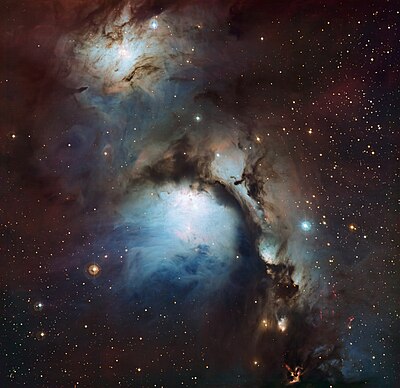Wikipedia:Main Page history/2022 January 14b
From today's featured articleLow is the 11th studio album by the English musician David Bowie, released on 14 January 1977 by RCA Records. Grounded in art rock and experimental rock, Low features Bowie's first explorations in electronic and ambient styles. Recording sessions began at Château d'Hérouville in northern France in September 1976 and ended in October at Hansa Studios in West Berlin. The cover artwork, a profile of Bowie from the film The Man Who Fell to Earth (1976), was intended as a visual pun, meaning "low profile". RCA refused to issue Low for three months, fearing it would be a commercial failure. Upon release, it divided critical opinion and received little promotion from either RCA or Bowie. Nevertheless, the album reached number two in the UK and number eleven in the US. Two singles were released: "Sound and Vision" and "Be My Wife". In later decades, critics have rated Low one of Bowie's best works, and it has appeared on several lists of the greatest albums of all time. (Full article...)
Recently featured:
Did you know ...
|
In the news
On this dayJanuary 14: Ratification Day in the United States (1784); Revolution and Youth Day in Tunisia (2011)
More anniversaries:
|
From today's featured list
Cervids, or deer, are members of Cervidae, a family of hoofed ruminant mammals in the order Artiodactyla. They are widespread throughout North and South America, Europe, and Asia, and are found in a wide variety of biomes. Cervids range in size from the 60 cm (24 in) long and 32 cm (13 in) tall pudú to the 3.4 m (11.2 ft) long and 3.4 m (11.2 ft) tall moose (example pictured). The fifty-four species of Cervidae are split into eighteen genera within three subfamilies: Capreolinae (New World deer), Cervinae (Old World deer), and Hydropotinae (water deer). Extinct species have also been placed into Capreolinae and Cervinae. More than one hundred extinct Cervidae species have been discovered, though due to ongoing research and discoveries the exact number and categorization is not fixed. (Full list...)
Today's featured picture

|
Messier 78 (M78) is a reflection nebula in the constellation Orion. It was discovered by French astronomer Pierre Méchain in 1780 and included by Charles Messier in his catalog of comet-like objects that same year. M78 is easily found with a small telescope as a hazy patch and features two stars of tenth and eleventh magnitude, which illuminate the cloud of dust in the nebula and make it visible. This photograph of the nebula was captured by the Wide Field Imager of the MPG/ESO telescope at the European Southern Observatory's La Silla Observatory in Chile. Photograph credit: Igor Chekalin
Recently featured:
|
Other areas of Wikipedia
- Community portal – Bulletin board, projects, resources and activities covering a wide range of Wikipedia areas.
- Help desk – Ask questions about using Wikipedia.
- Reference desk – Serving as virtual librarians, Wikipedia volunteers tackle your questions on a wide range of subjects.
- Site news – Announcements, updates, articles and press releases on Wikipedia and the Wikimedia Foundation.
- Teahouse – To ask your first basic questions about contributing to Wikipedia.
- Village pump – For discussions about Wikipedia itself, including areas for technical issues and policies.
Wikipedia's sister projects
Wikipedia is hosted by the Wikimedia Foundation, a non-profit organization that also hosts a range of other projects:
-
Commons
Free media repository -
MediaWiki
Wiki software development -
Meta-Wiki
Wikimedia project coordination -
Wikibooks
Free textbooks and manuals -
Wikidata
Free knowledge base -
Wikinews
Free-content news -
Wikiquote
Collection of quotations -
Wikisource
Free-content library -
Wikispecies
Directory of species -
Wikiversity
Free learning tools -
Wikivoyage
Free travel guide -
Wiktionary
Dictionary and thesaurus
Wikipedia languages
This Wikipedia is written in English. Many other Wikipedias are available; some of the largest are listed below.
-
1,000,000+ articles
-
250,000+ articles
-
50,000+ articles





